How was your reading month? Mine was pretty good, featuring a mix of political nonfiction and translated fiction from Germany and Argentina.
How was your reading month? Mine was pretty good, featuring a mix of political nonfiction and translated fiction from Germany and Argentina.
The Machinery of Freedom by David D. Friedman
I’m always interested in reading about different political and economic systems—it seems quite important, since the status quo is leading to planetary destruction. Unfortunately, Friedman’s anarcho-capitalist utopia didn’t sound like a society I’d like to live in, but was refreshing to see small-government, free-market libertarianism taken to its logical conclusion.
The Lime Tree by Cesar Aira
This wasn’t quite what I was expecting, but I enjoyed it anyway. I thought it was a novel, but it’s actually a “fictional memoir”, so there wasn’t really much of a plot, but there were some beautiful childhood memories and descriptions of life in small-town Argentina just after the fall of Perón. For a more coherent account, see Caroline’s review, which inspired me to read the book in the first place (although clearly I wasn’t paying attention to the part where she says it’s a fictional memoir, not a novel!).
Revolting Prostitutes: The Fight for Sex Workers’ Rights by Molly Smith & Juno Mac
Should we legalise prostitution, regulate it, or further criminalise it? These are questions that get asked a lot, but as this book shows, people rarely ask sex workers themselves. The result is that even well-intentioned legislation often harms sex workers and makes their lives more dangerous. I thought that Revolting Prostitutes would tell me more about the struggle and activism among sex workers, but it was more of an examination of different systems and their pros and cons, coming out on the side of decriminalisation, and this was very interesting to read, especially since the authors are sex workers themselves and write from an often ignored or marginalised perspective.
White Fragility by Robin DiAngelo
This book was so good and so important that I just want to have a box of copies to hand out to people. It really excavates why so many white people baulk at any mention of the “R” word and become defensive, tearful or angry. DiAngelo explains how racism came to be falsely associated only with consciously hateful acts by bad people, so that people who think of themselves as good and liberal react with horror and rejection when confronted with their own racism. DiAngelo shows that racism is a system of power that envelops us all, demonstrating how to accept your own position within that power system and learn to move on from the useless guilt and defensiveness and instead start talking constructively about racism and working to undo its power.
The Lamentations of Zeno by Ilija Trojanow
Given that climate change is the biggest existential threat facing us right now, it’s surprising that there hasn’t been more good climate-change fiction. In fact, sometimes it seems weird to me to be writing about anything else.
So I was happy to discover The Lamentations of Zeno, in which a climate scientist gets tired of measuring the destruction of glaciers and taking tourists to the Antarctic and decides to take matters into his own hands. I didn’t love everything about this book (review to follow), but I can recommend it overall.
Class War Conservatism & Other Essays by Ralph Miliband
Unfortunately, the name Miliband is now mostly associated with the tepid Tory-lite compromises that led to electoral disaster in 2015 and enabled the Conservatives to take the country into Brexit. So it was interesting to read these essays by Ralph Miliband, socialist intellectual and father of Ed and David. They’re mostly from the 1970s and early 1980s, so a lot of the arguments and events are now very dated, but some things, such as the divisive class war being very successfully waged by the rich against the rest of us, are still as relevant as ever.
The Verdict
Quite an eclectic month of reading, and I’d recommend most of these books, but the one that stands out for me is White Fragility. It felt strange to examine and think about whiteness, and that in itself was eye-opening.
For more book bloggers’ month-end roundups, check out the list on Feed Your Fiction Addiction. And let me know your favourite read of the month in the comments below.
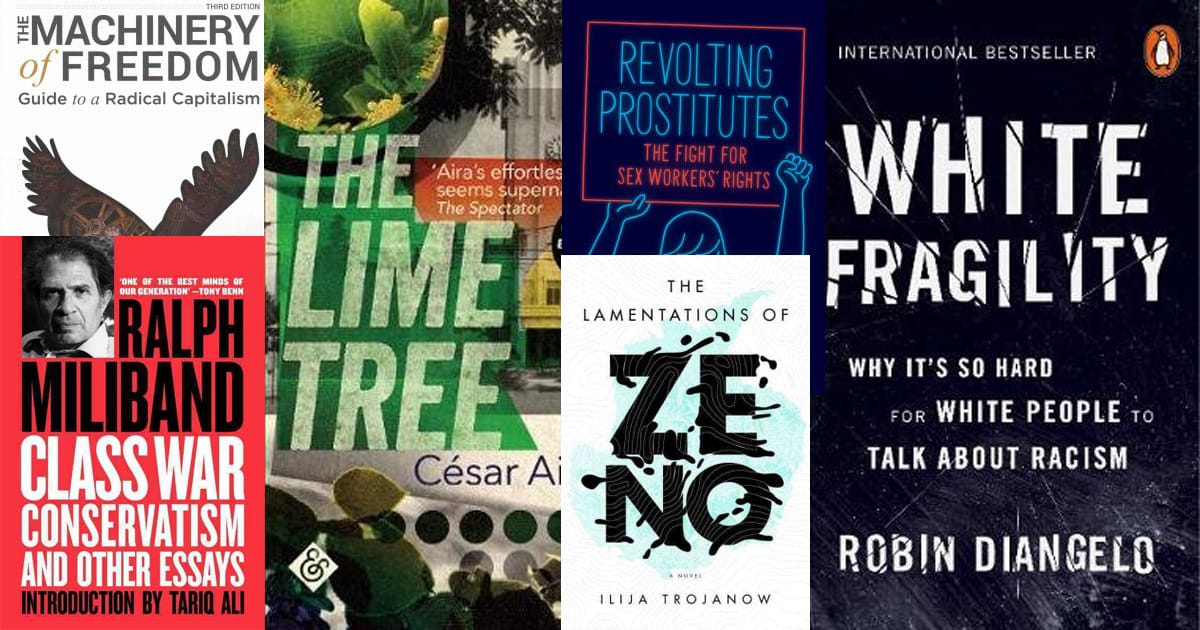
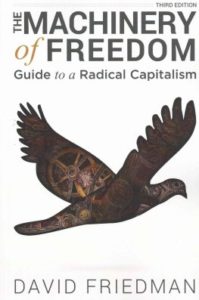
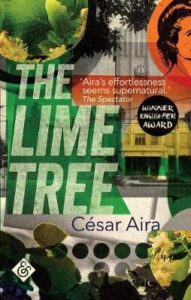
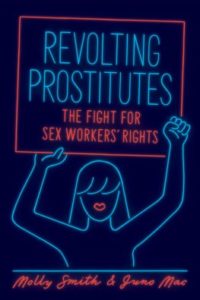
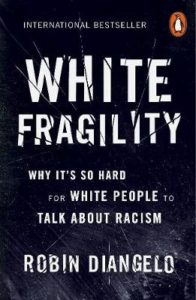
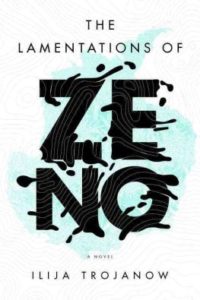
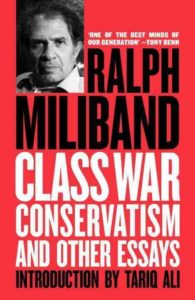



There are 14 comments
You had quite a few interesting sounding books this month. Check out my monthly wrap-up at Girl Who Reads
Thanks Donna! Heading your way now 🙂
A very interesting bunch of books. The Lime Tree does seem fascinating. I also like to read about different thought and economic systems even when I do not agree with them.
I have been thinking of giving White Fragility a try myself.
Yes, it’s good to expand beyond what we have to think about other alternatives, isn’t it? I like to read about something different, and The Machinery of Freedom helped me to clarify exactly why I didn’t like the sound of that system and what I’d do differently. Do try White Fragility! It’s excellent and thought-provoking.
I discovered you on envanto tuts. It seems that platform has drank the Kool-aid.
I appreciate anyone willing to dedicate time to educate, consider, and be critical of new information or ideas. I hope your research also included the due diligence of reading & considering the (many) criticisms of Robin DiAngelo. The Kafka-esque trap is unavoidable in her worldview. Recent revelations and events have made it abundantly clear dissenters will shunned, silenced, & harassed. Valid criticisms of The Message will not be tolerated.
https://www.theatlantic.com/ideas/archive/2020/07/dehumanizing-condescension-white-fragility/614146/
https://fee.org/articles/white-fragility-unpacking-the-kafka-traps-of-robin-diangelos-nyt-bestseller/
https://hedgehogreview.com/issues/who-do-we-think-we-are/articles/the-unchosen-condition
https://newdiscourses.com/2020/06/intellectual-fraud-robin-diangelos-white-fragility/
https://hcommons.org/deposits/objects/hc:42878/datastreams/CONTENT/content?download=true
Hi Anonymous, Thanks for sharing these links. I don’t do “due diligence” when I’m reading—I prefer to just read books and make up my own mind. I am aware that White Fragility has provoked strong reactions and criticisms. Thanks for leaving the links here for people to explore if they want to get alternative viewpoints.
I’m glad you liked The Lime Tree anyway. It’s not exactly a novel, no, but from what I heard he’s usually more experimental. White Fragility sounds interesting. I realized meanwhile that a lot of racism is quite well hidden.
Ah yes, Caroline, I meant to go back to your review and let you know I read it, but I forgot, so I’m glad you found this. Yes, I did enjoy it, and I’m glad I discovered it through your blog. And you’re right about racism often being well hidden. We tend to think of it in terms of obvious individual acts, but often it’s more structural.
So here’s my verdict about THUG the book versus the movie–I loved both! The acting was really good and it brought back things I’d forgotten, like the issue of her dating a white boy that her parents were not too happy about (I’d forgotten about that part with the bigger issues at hand). I t was really cool discussing the trial and evidence with my family as we watched the movie together.
Ah, that’s great to hear, Danielle! Thanks for remembering to stop by and let me know 🙂 It’s interesting how a book and movie version can sometimes bring up issues/responses, isn’t it? I remember that element of the book, but I agree that it wasn’t a big focus with everything else that was going on. Must have been good discussing it all with your family! That’s one advantage of a movie, I suppose—the more communal aspect of it.
What an impressive list. So much to think about in all these pages! I first heard of White Fragility via the “Still Processing” podcast (they do discuss the book in an early episode and use the phrase in later ones) but I’ve yet to track down a copy. Also, despite my intentions at the beginning of this reading year, my selection has been much more fiction-oriented than non-fiction, but it’s not too late to swing that pattern (although it’s well into April by the time I’m reading your March roundup) and I’m not complaining because the fiction I’ve been reading has been good stuff. The only non-fiction in my March was a mini-binge with Azar Nafisi’s stuff (The Republic of Imagination was delightfully bookish) and I read a collection of Goli Taraghi’s short stories – they’re terrific. Hope you’re enjoying April so far!
Ah, you’re a true booklover, BIP. Not only does your blog leave me wanting to read more, but even your comments… I now have two more books to read and a podcast to listen to 🙂 They sound great! Did you make a conscious effort to seek out Iranian authors this month, or did it just happen that way?
*chuckles* Right back atcha. The podcast is a new discovery for me; but it’s my new favourite amongst the not-always-bookish-but-sometimes-bookish bunch. I was working on a review of a Canadian-Iranian woman’s debut (in English) collection of short fiction and I felt like I needed more context. Now I know a little more about how under-read I am in Iranian lit! (But her Republic/Imagination is mostly about the western canon.)
That sounds like a good reason! Sometimes I am overwhelmed by the amount of world literature out there and my profound ignorance of so much of it. I’d love to read more Iranian literature, among many others. I have been trying to read at least one book from each of the countries I visit, but I’ve even fallen behind with that lately, with all the UK books I want to read as well.